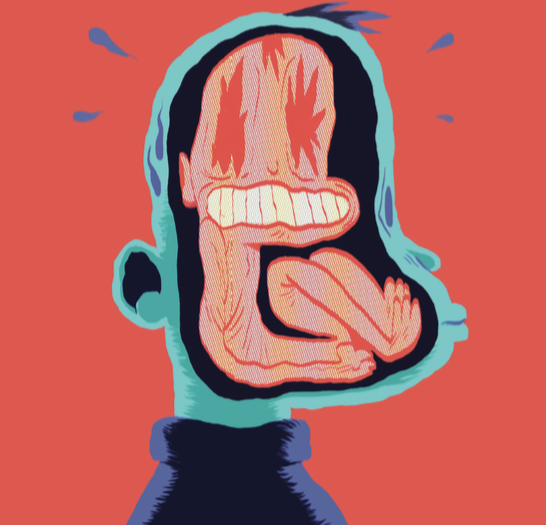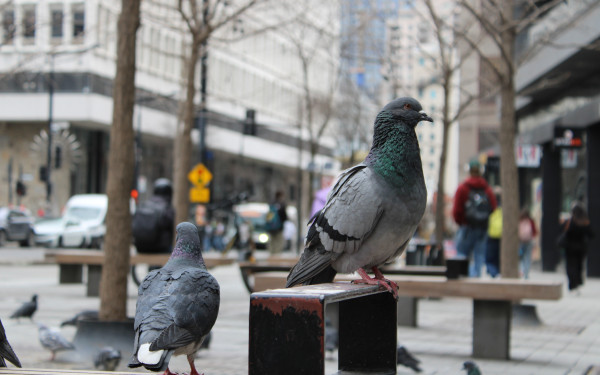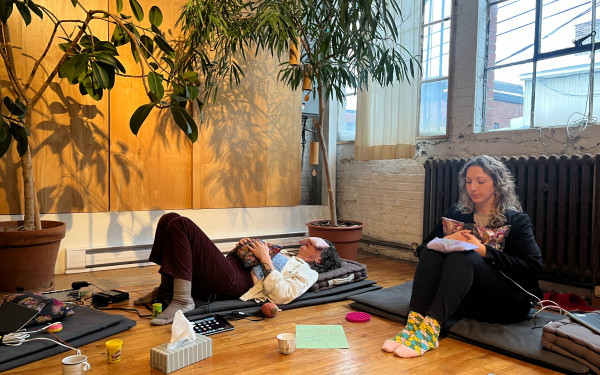The Anxious Mind and Its Many Forms
What You Should Know and What You Can Do to Help
It’s important to note that anxiety should never be generalized. Anxiety elicits a different reaction from everyone who suffers from it.
It’s also important to note that, no matter where someone falls on the anxiety spectrum, you shouldn’t dismiss them. Suffering is suffering. Anxiety is anxiety. No matter the context.
“Most people associate anxiety with fear and nervousness, which kind of undermines it,” said Jenna Pearl, a woman diagnosed with Generalized Anxiety Disorder. “Anxiety isn’t necessarily an emotion. More than anything, it’s really a state of mind.”
The sensation of anxiety ultimately depends on the person. In my own case, negative thoughts and worries whir inside my head, gradually growing until I bend under their pressure.
They create a constant noise at the back of my mind, whispers that tell me I’m not good enough and that I never will be. Until finally, the thoughts become too much, my chest tightens and I get an unpleasant lump in my throat.
I know that what my anxious thoughts are telling me is untrue, but the small part of me that does believe it is all my anxiety needs to override my mind and body.
I cease to think straight and I end up keeling over, hands on my knees, trying to breathe properly. My eyes dart all over, allowing my anxiety to latch onto anything it can use to fuel the fire and make my body shake. If I’m lucky, I’ll be able to reach someone who can talk me down. This process can take weeks or even just a few hours.
Anxiety doesn’t work around your schedule. It likes to pop in unannounced. “You could be sitting in the most relaxed setting possible, and then suddenly you can’t breathe,” Pearl said.
“Everybody has a different reaction,” said Nataly Khenkin, a Concordia student. “You can either freeze up, become really irritable, or become very panicky and outwardly look like you’re having an anxiety attack.”
It’s a situation of severe discomfort, Khenkin continued. You don’t feel like yourself anymore and things start slipping out of your control.
In Khenkin’s case, she described her anxiety as being a repression of her anxious thoughts and feelings that build up until she begins to feel numbness spread throughout her body.
“I’m aware that I’m going numb, which makes things ten times scarier,” Khenkin explained. “Or it can take on a more extreme form where I become more vocal. I cry and fidget and it’s not a pretty picture.”
With so many different possible reactions that people can have, what can you possibly do to help your loved one when they’re experiencing anxious thoughts or a full on anxiety attack? And what should you not do?
It’s normal for someone who hasn’t experienced any form of anxiety to be a little worried about offending someone who has. Don’t worry. That’s normal and you’re certainly not alone in that regard.
“There’s a big fear if you don’t have a particular mental illness,” Pearl said. “That fear of not knowing how to help someone who does. You can get self-conscious about saying the wrong thing or not helping.”
In this case, Pearl explained that it’s good to be honest and assure the person with anxiety that you’re simply there to help. “Let them know that, ‘Hey, I’m here, what can I do to help?’”
Not even asking what’s wrong but simply offering your help is a very important thing you can do.
Ultimately, it is vital that you aren’t dismissive of the anxious person’s feelings, no matter what the situation may be. And don’t be an arrogant jerk and say things like ‘Oh, you’re just overreacting. Just stop feeling anxious and it’ll go away!’
As Pearl put it, “You can’t just snap out of anxiety.” You’d think if that were the case, we’d have done it by now.
“I find it very insensitive when someone just tells me to ‘calm down’,” Khenkin said. “Instead of just brushing it off, you should see what your friend needs.”
Ask what you can do to help your anxious friend. If what they want is space, give them space. If they say that they need to go to a quiet corner and talk—do that.
I find it helps to talk about mundane things like what I ate for breakfast or what I like about my favorite animals—anything to get my mind away from the anxious thoughts so that I can see straight and get my breathing back to normal.
But above all, it’s important to be patient. Be there for your anxious friend, be attentive, and be understanding. They are still the same person that you loved before they started having an anxiety attack and they’ll be the same person you love afterward as well.


_600_832_s.png)




